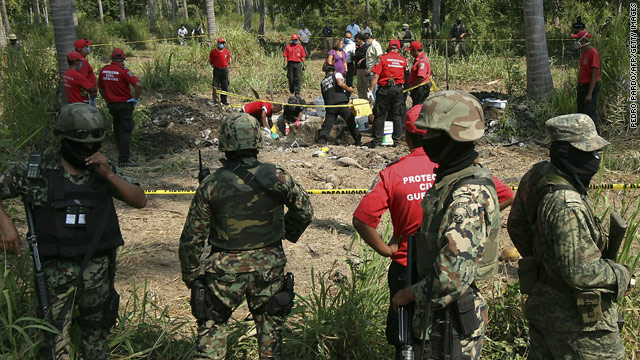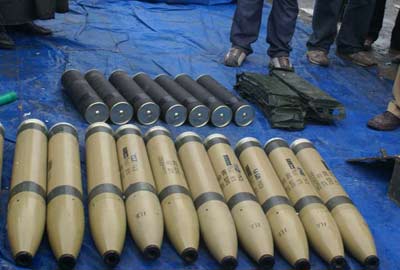By Erica Laster Impunity Watch Reporter, North America
MEXICO CITY, Mexico – Gunfire and death has resulted in increased tension among the northern Mexican states and Texas cities just across the border. With politicians being gunned down , citizens being recruited to the cartels and cartels constantly patrolling highways, the Mexican states bordering Texas have forced many to retreat. Colleges and Universities in Texas have also felt the impacts of drug cartel control and gunfire.

Many of Mexico’s victims speak on condition of anonymity, noting that “This is out of the government’s hands. Mexico has been sacrificed and sold to the narcos. It is the narcos who have the power.”
On Thursday near Acapulco, 18 bodies were removed from a mass gravesite. Investigators believed their deaths may have been a mistake. A video posted on YouTube led authorities to the gravesite after anonymous calls to the police. The video depicts two men being forced to answer questions from an off scene interrogator, confessing to killing the Michoacan men in the graves over drug trafficking disputes. These videos are a powerful tool, challenging the authority of the state as vigilante justice is brought by criminals.
This past Friday, cartels and military forces clashed after the death of Tony “the Storm,” leader of the Gulf cartel. Three of his henchmen were also killed in the gunfire in Matamoros, Tamaulipas which could be heard across the border in Texas. CNN reported that border colleges only a half a mile away, including the University of Texas at Brownsville and Texas Southmost College were forced to cancel classes and rearrange weekend events “because of gunfire taking place across the Rio Grande.”
On Saturday, eighteen were killed in Ciudad Juarez. While many used to believe that any murdered victims were involved with narcotics, now, everyone is at risk. One incident included a family of seven being slaughtered outside their home, including two brothers, believed to be the targets. Five more bodies were found dead inside of a car and two were found lying in the street. This marked one of the bloodiest days of the year in Ciudad Juarez.
For More Information Please Visit:
CNN – Official: 18 People Killed In Ciudad Juarez – 7 November 2010
CNN – Gunmen, Forces Clash After Cartel Leader Killed – 6 November 2010
LA Times – Caught Behind Enemy Lines – 6 November 2010
Washington Post – Mistake May Have Led To Mass Grave Deaths In Mexico – 4 November 2010


